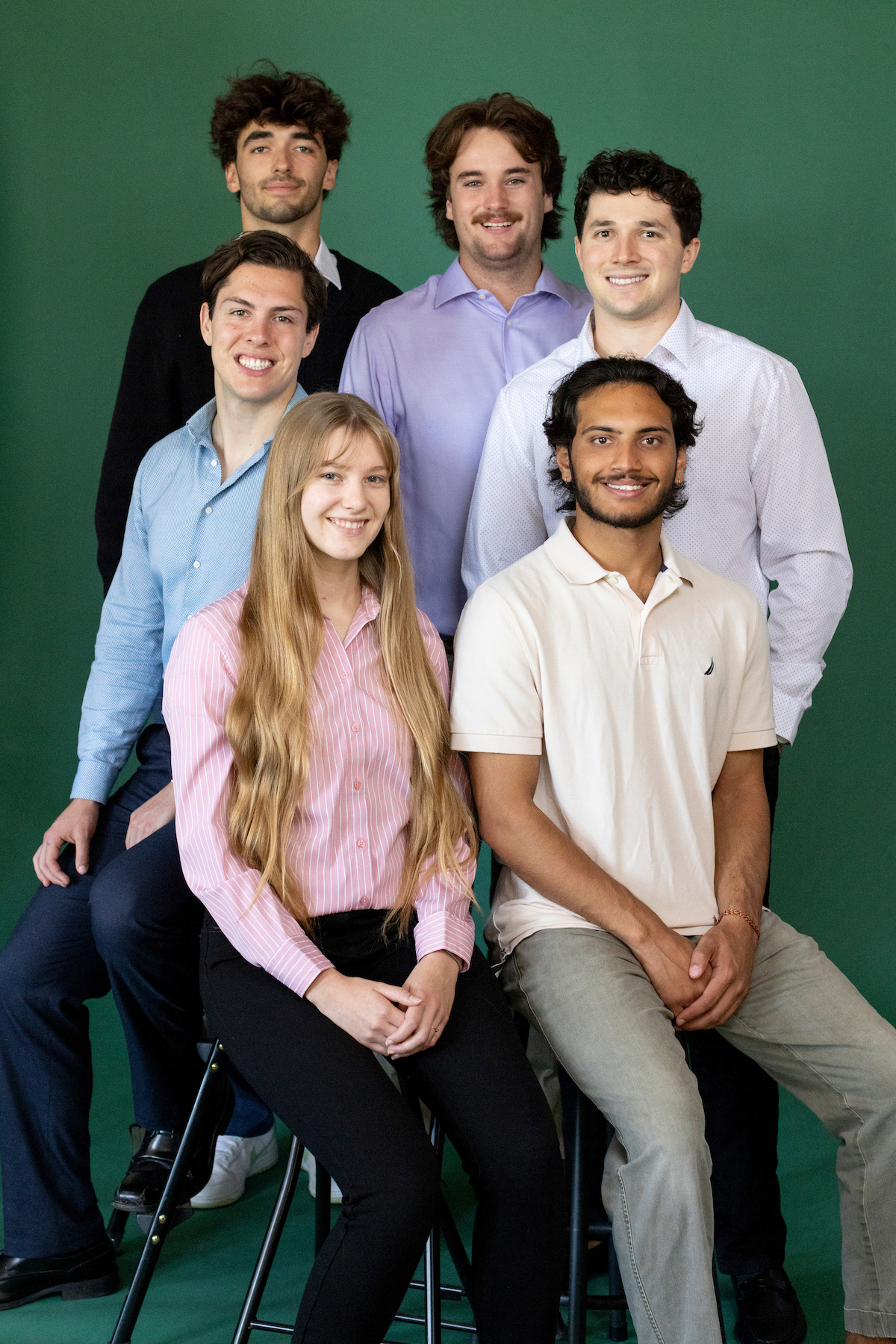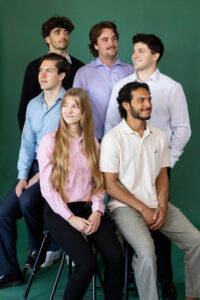From the sidelines to safety: ODIN’s mission to combat concussions

Concussions are far more widespread and severe than most realize. Shockingly, 50% of concussions go undetected, despite the fact that there are 3.8 million sport-related concussions annually in the United States alone, according to the University of Michigan.
The same study also explains that globally, 12 concussions occur every second and $1,522 is spent on concussion care every second.
While occasional incidents make headlines, countless athletes, from youth leagues to professional sports, endure the lasting effects of brain injuries.
ODIN is dedicated to addressing this critical issue head-on by using innovative technology to revolutionize athlete safety.
Founded during a California Polytechnic State University (Cal Poly) senior project class, ODIN aims to mitigate the compounding effects of brain injuries in athletes participating in impact sports. Their primary product is a sideline-ready headset that provides objective and transparent concussion assessments in minutes.
Their mission is deeply personal for Cal Poly economics and entrepreneurship graduate Connor Heffler, the CEO of ODIN and former football player, who has firsthand experience with the devastating impact of concussions on athletes.
“I’ve felt the effects of concussions and seen many of my teammates affected by them, so this is something very close to my heart,” Heffler shared.
Under the encouragement of their senior project advisor and the CIE Academic Programs Director, Dr. Thomas Katona, ODIN applied to the CIE’s Innovation Quest, a high stakes competition where Cal Poly students pitch their innovative business ideas and prototypes to a panel of judges in hopes of winning thousands to fund their startup.
ODIN received the first-place award of $15,000, and used this attention and funding to continue developing their startup through the CIE’s Summer Accelerator program, an intensive 12-week program that provides Cal Poly students and recent graduates with the resources necessary to turn their innovative ideas into full-fledged startups.
Participants in the Accelerator receive $10,000 in seed funding, as well as access to expert mentorship, entrepreneurial workshops and a dedicated workspace in the HotHouse, the CIE’s office located in downtown San Luis Obispo.

SAN LUIS OBISPO, CA: ODIN during Cal Poly’s Center for Innovation and Entrepreneurship (CIE) CIE Summer Accelerator photo session on June 06, 2024 in San Luis Obispo, California. Photo by Ruby Wallau for CIE
The team behind ODIN is composed of several dedicated individuals, each bringing a unique skill set to the startup. “I knew I couldn’t develop ODIN on my own. I recruited engineers dedicated to making a real difference, not just building something cool,” Heffler explained.
Josh Gottschalk, a fourth year biomedical engineer at Cal Poly, serves as ODIN’s COO and oversees regulatory work and competitor patent infringement.
Noah Cain, recent Cal Poly graduate in computer science, acts as one of their Machine Learning and Software Engineers and ensures the headset is as accurate and precise as possible.
Marina Zellers, a biomedical engineering master’s student at Cal Poly, acts as ODIN’s Biomedical Engineer and maintains accurate concussion diagnosis and compliance with FDA regulations.
Seth Saxena, a third year engineer at Cal Poly, is ODIN’s Lead Electrical Engineer and focuses on redesigning the headset’s hardware setup and developing the computer vision code.
Sarah Duncan, the newest member of the team, is a computer science master’s student at Cal Poly and acts as their Machine Learning and Software Engineer, working alongside Cain to create precise models for detecting concussions.
As the CEO, Heffler oversees everything from customer development to pitching to investors.
ODIN hopes to demonstrate the safety and efficacy of their device, eventually bringing it to the market to enhance the safety of athletes at all levels.
“Our goal is to have this headset on every sideline, from youth sports to professional leagues, reaching millions of athletes and other individuals who suffer from concussions,” Heffler explained.
The team is already in talks with The National Football League (NFL) Head, Neck, and Spine Committee and NFL team physicians, targeting the broader sports community.
Currently, the primary option for concussion assessment is the Sport Concussion Assessment Tool (SCAT), a questionnaire filled out by players. However, players might lie to get back on the field, leading to long-term issues like traumatic brain injuries or memory loss. The team recognizes the preexisting solution’s limitations and the dire need for a more effective and user-friendly option, they said.
“Unlike our competitors, it will be a non-invasive product that will be perfect for sideline use as it will be completely portable and ready to give concussion assessments in minutes,” said Gottschalk.
ODIN’s mission to elevate athlete safety through innovation is more than just a business endeavor, but a pursuit of passion to protect the future of athletes.
About the Cal Poly Center for Innovation and Entrepreneurship:
The CIE opens a world of entrepreneurial opportunity to Cal Poly students, faculty and community members and promotes entrepreneurial activity and dialogue across the university and throughout San Luis Obispo County. For more information, visit cie.calpoly.edu.
# # #